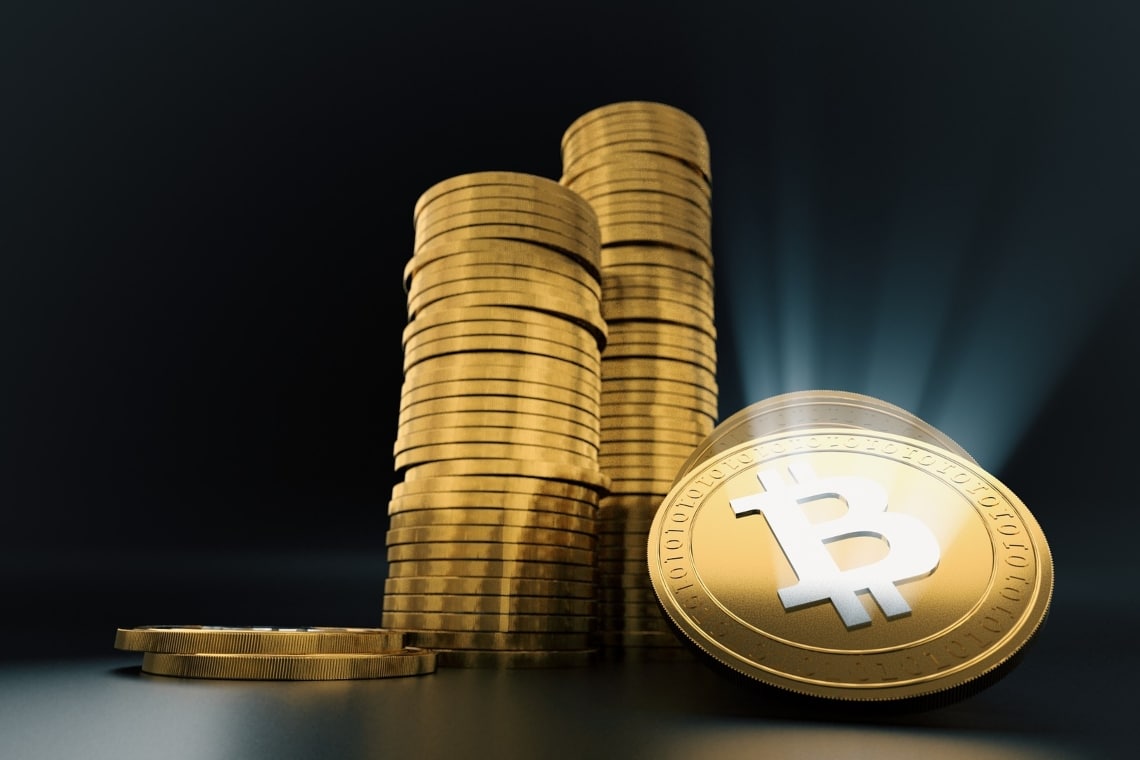It’s an all-time record for BRC-20 Memecoins, which have become a dominant force in Bitcoin transactions, accounting for a significant 47% share since the beginning of May.
Notably, this surge peaked on the 7th of May, when BRC-20 tokens surpassed non-BRC-20 ordinal transactions, claiming a 65% market share.
Here are all the details.
Summary
BRC-20 memecoins besiege bitcoin’s blockchain
According to CryptoQuant analyst Axel Adler Jr, the bitcoin (BTC) network is now “under siege” due to rising fees and transaction backlogs caused by a popular new token standard, the BRC-20 tokens.
Specifically, Axel Adler Jr explained that the BRC-20 Memecoin mint on the BTC blockchain is causing a surge in demand for block space, adding:
“Unlike conventional token standards, such as Ethereum’s ERC-20, BRC-20 does not use smart contracts and only works with wallets that support the Bitcoin blockchain.”
According to CryptoQuant, the average fee per transaction has also risen sharply, exceeding $16 and peaking at $29 on 9 May. Specifically, tweets published by CryptoQuant state the following:
“Bitcoin under siege by ‘junk’ BRC-20 coins: record fees and thousands of unconfirmed transactions!”
Furthermore, Bitinfocharts data also reported an increase in average transaction fees, peaking at $31 on 8 May, compared to around $19 the day before.
Not only that, but on 8 May, for the first time since 2017, the total fees per block temporarily exceeded the block subsidy reward of 6.25 BTC.
Then, on 9 May, Bitinfochart data recorded a new all-time high for the seven-day moving average of the number of bitcoin transactions, reaching a high of 534,000.
However, the number could be higher as Bitinfocharts recorded two peaks of over 600,000 daily transactions this month using raw parameters. In fact, on 9 May, it recorded 598,000 transactions on the BTC blockchain.
Comments on Bitcoin Ordinals
Mati GreenSpan also commented on the situation on Twitter, stating the following
“Love them or hate them, ordinals are definitely disrupting the situation. Yesterday the number of transactions on the bitcoin blockchain hit a new all time high of 534,000”.
Blockchain.com also confirmed the data, reporting that the average number of transactions per block reached an all-time high of 3,778 transactions.
Graph of the average number of transactions per block on bitcoin
According to Mempool Space, there are currently around 400,000 transactions on the network awaiting confirmation, so the backlog is not drying up, keeping transaction prices high.
Then we see that on 9 May the total market capitalisation of BRC-20 tokens exceeded $1 billion, according to the data.
The problem has become so serious that the Bitcoin core developers are considering taking action against BRC-20 tokens and Ordinals, which we read are considered network spam:
After all, we do know that the number of Ordinals inscriptions almost doubled from 2.5 million to 4.78 million in just over a week. It’s all good news for the miners, though, as profitability, or the price of hash, has risen by 66 per cent since the beginning of the month.
BRC-20 tokens exceed $1 billion market cap
As anticipated, on 9 May, the total market capitalisation of BRC-20 tokens exceeded $1 billion, with a total trading volume of $207.7 million in 24 hours.
The most important tokens that have been implemented are, among others, ORDI, NALS, VMPX, PEPE and MEME, with a price variation between +11% and -55% in the last day.
As we know, the BRC-20 token standard was developed by Twitter user Domo on 8 March.
At present, there are over 14,000 BRC-20 tokens distributed on Bitcoin compared to about 628,000 tokens on Ethereum.
In this regard, it was Domo himself who stated that the standard is useless and that users should not waste money en masse to coin this experiment:
In any case, BitKeep recently announced that it will soon support the Ordinals protocol and the BRC-20 protocol on its mobile and plug-in extension platforms.
A new Bitcoin NFT section will also be included in the BitKeep NFT marketplace, enabling the display, minting, transfer and trading of NFT BTC based on the Ordinals protocol.
In all, despite being proud of its prospects, Trust Wallet has decided not to support Bitcoin Ordinals. Meanwhile, MetaMask added a new feature in February that allows users to store Ordinals.




